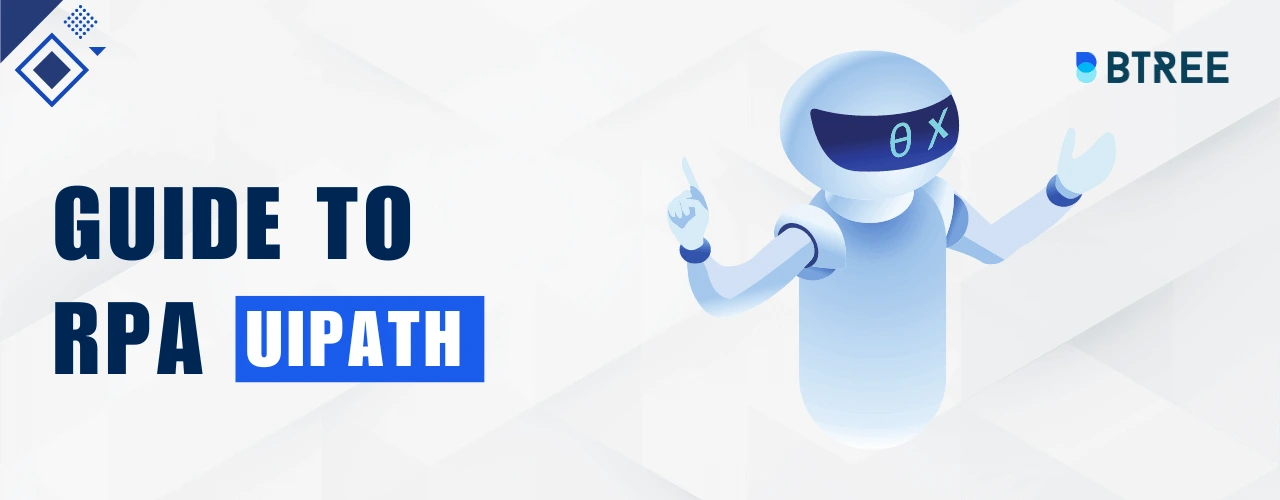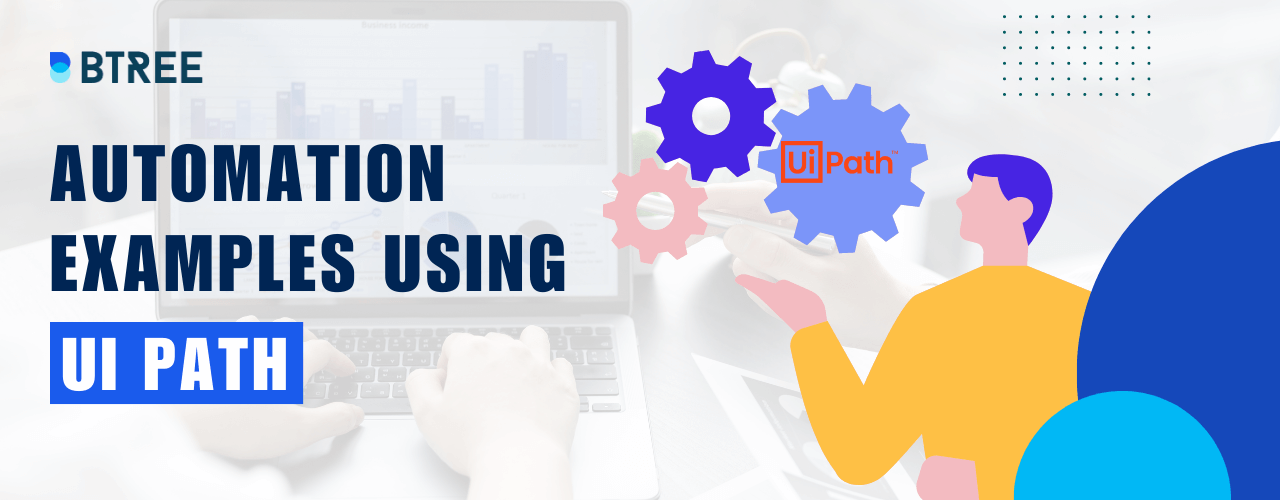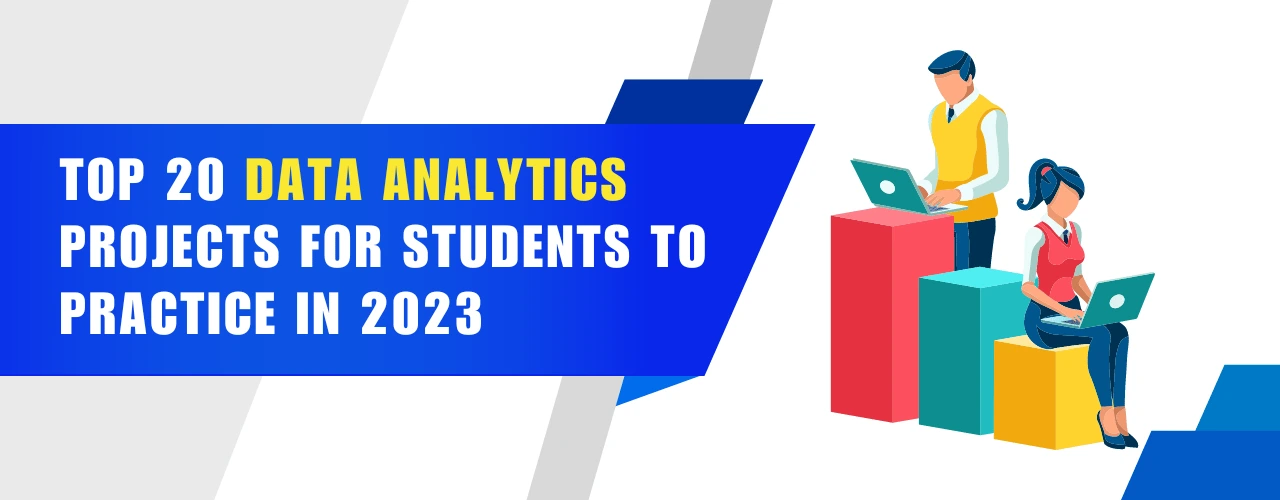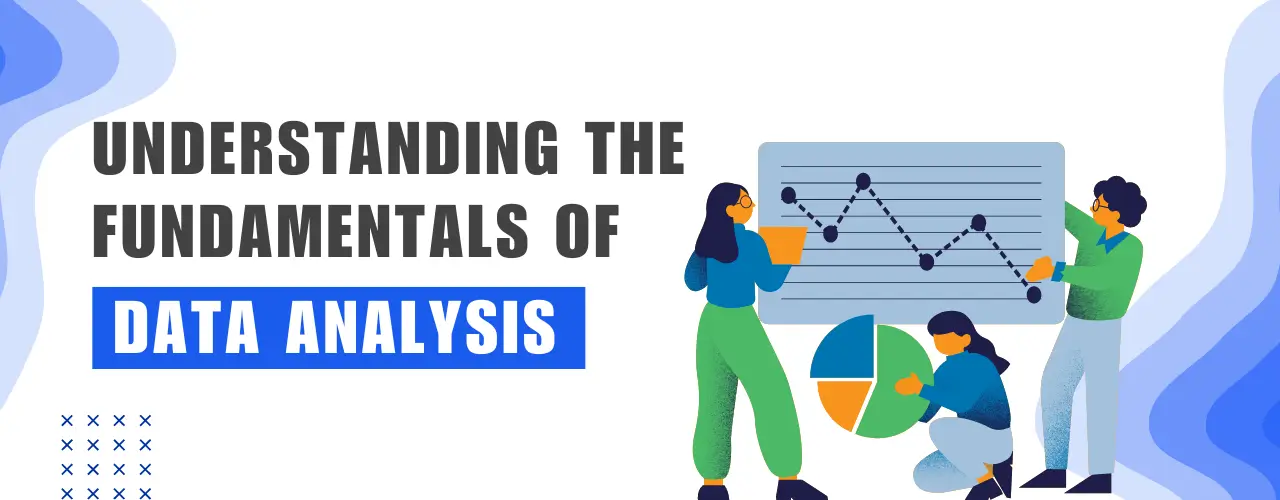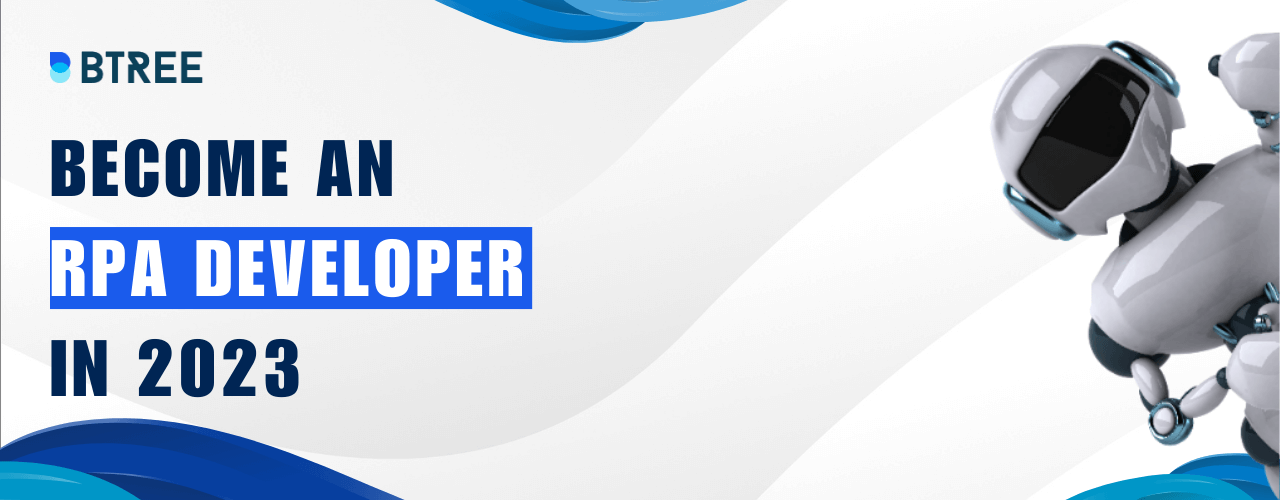
What is an RPA?
RPA or Robotic Process Automation is an industry where software is implemented to automate certain tasks to improve the work done by a business. It is an up-and-coming industry where many companies require RPA developers. Utilizing RPA in your workflow has several advantages, namely:
- Fewer resources are spent
- Highly accurate result
- Can run 24/7
- Is very useful for data mining when it comes to real-time data
- Highly compliant
- Can be integrated with other software
RPA has various uses in the industry ranging from creating predictions based on some prerequisites mentioned during the automation of the task to automatically filling table values when data is once entered. Some of the most famous examples of RPA tools are:
- UiPath
- Automation Anywhere
- Blue Prism
- Advanced Excel
- WorkFusion
- Pegasystems
Who is an RPA Developer?
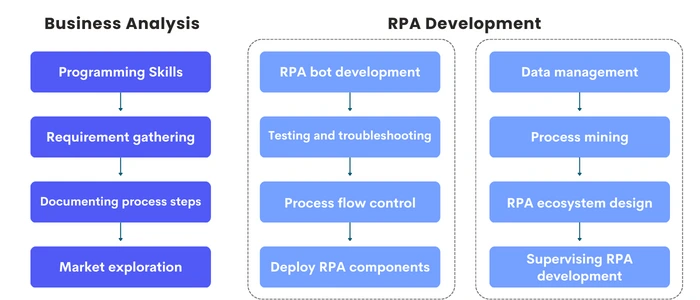
An RPA Developer is a person who integrates business operations, cross-references with Business Analysts to automate certain processes. This is done to introduce a standardized process in the workflow. They possess the ability to implement software for automation purposes and perform maintenance on automated tasks.
To become a RPA Developer each must possess a proficient in the usage of various tools such as UiPath for example, and should possess significant coding prowess to execute complex Machine Learning algorithms or other functionalities. In addition to that they should be proficient in skills like documentation and planning. An RPA developer should be able to draw detailed flowcharts and be able to document the automation properly.
One of the other abilities of a good RPA Developer is their ability to constantly update their automation tools or functionalities to scale up the application according to business needs and also debug and maintain the automation process.
How to Become a RPA Developer?
The minimum requirement to become a RPA Developer is to hold a degree in Computer Science or any IT field which is coding intensive. Knowledge of coding languages such as is a must when it comes to become a RPA Developer due to the necessity to code Automation processes.
You need to have a great resume with relevant skills and experience to match your vision of becoming an RPA Developer. Prior experience in automating workflows will be instrumental to getting high-paying jobs as an RPA Developer. To get more experience as an RPA UiPath Developer, grasp your knowledge with our expert training.
Here are a few steps to follow to become a RPA Developer. Note that this is not the rule, but a skeletal framework of a roadmap.
Step 1: Get a Degree in Computer Science/ Data Science
While it isn’t necessary to compulsorily get a degree in Computer Science to get a job as an RPA Developer, it will be a good idea to set you on the right track. Even when in college, try to learn some good coding languages such as C++, Python, Java, Excel VBA, and JavaScript so that it will help you in becoming a great RPA Developer.
Step 2: Learn Coding Languages
When you’ve decided to become a RPA Developer, it is important to single out the coding languages you want to work on. If you’re preferring to go into the front end, try to learn JavaScript, or HTML for Automation. When it comes to the backend, try learning Python, C#, and Java for App Development on the automation side and Databases like SQL, MongoDB and so on.
Step 3: Gain Experience
To build your portfolio as an RPA Developer, do some courses on some tools available on the internet for UiPath and Automation Anywhere. Once you’ve been certified, you’ve shown the recruiters that you have basic knowledge of these tools and can be trained further for their purposes. It is also equally important if not more to specialize on what type of automation you want to specialize in whether that may be Data Mining Automation, Process Automation, Data Analysis Automation and so on.
Step 4: Build your Resume
In the case of RPA Developers customize your Resume to cater towards what specifics they’re asking for in an RPA Developer. It may range from Process automation to Data Analysis. Hence, it is important to understand what the recruiters are asking for in the job. Other than job experiences, it is important to build and work on your projects to show them to the recruiter when you get selected for an interview. The more experience you gain, the higher chance you’ll be selected for an interview by the company you’re applying for.
Step 5: Develop your profile on a Job Hiring website
Once you’ve established that you want to become a RPA Developer, it is important to start developing your job/work portfolio to become an accomplished RPA developer. To do as such, go to websites such as LinkedIn, Glassdoor, Upwork and many such websites to develop your profile. It is recommended to start working on it while you're pursuing your degree in college since it gives you more room to experiment and more room for trial and error. Once you graduate, you’ll need to manage your finances which will ultimately restrict you from working on your passion.
Workflow of an RPA Developer
The typical workflow of an RPA Developer, for a Junior RPA Developer, they’re led by the RPA Sponsor and RPA Evangelist in a project. All projects have a budget and the RPA sponsor, who is usually a Senior RPA Developer, is the automation expert and can skew the budget of the project for your benefit. The RPA Evangelist is the RPA Project Lead. They spearhead and oversee the entire RPA Development and ensure all the cogs in the machine are working properly with no bugs and glitches.
Other than maintaining a rapport with the business analysts or Software Engineers, an RPA Developer should also be able to work with his bosses, that is, the RPA Sponsor and RPA Evangelist who are the most important people when it comes to RPA Development.
Skills and Roles of an RPA Developer

To become a RPA Developer, you need to be proficient in one or more RPA tools, such as UiPath, Automation Anywhere and also have great problem-solving skills. This is very important when it comes to task automation whose developing process requires significant problem-solving skills.
Not only that, but an RPA Developer should also be able to collaborate with corporate Stakeholders and Business Analysts to come up with a consensus and meet their requirements. An RPA Developer should be strong in coding basics and coding languages such as Python, Java, C# and so on when it comes to coding.
Let us look at a job of an RPA Developer to better understand the Roles and requirements that the company lists. This is an original description put by a company while hiring an RPA Developer.
Mandatory Skills:
UiPath, UFT, Test Suite, Test Manager, UiPath Orchestrator, UiPath Studio, Reframework, UFT and UI path are mandatory skills.
Responsibilities of an RPA Developer in a company:
- Help in building necessary enhancements for the business with the help of software developing concepts and previous experience.
- Test and Debug, utilize scripting tools, and write basic code to fulfill the objectives underlined by the company.
- Prepare proposals on task automation based on requirements entailed by the business.
- To develop a working knowledge of information systems, procedures, standards, client-server application development, network operations, database administration, systems administration, data center operations, and PC-based applications in the business for easy integration of processes.
- If experienced, help in coaching Junior Analysts/RPA Developers on how the company or procedures work.
- Must be highly ethical, providing consideration for the business's reputation, its assets, and its clients and adhering to privacy policies. The employee should also possess high ethics when it comes to behavior in the workplace, and report on those who do not comply with the business policy.
- Extensive knowledge of OCR / Cognitive services depending on the type of RPA Automation you are choosing.
- Experienced in AI & ML tools and software to implement them in RPA solutions.
- Maintain, monitor and improve RPA solutions constantly.
- Need to possess knowledge of infrastructure, including servers, storage, firewalls, load balancers, routers, etc.
Additional skills
- Possess experience across multiple RPA tools such as UiPath, UFT, Test Suite, Test Manager, UiPath Orchestrator, UiPath Studio, and Framework.
- Previous systems analysis and coding experience in software applications will be of great benefit.
- Process complexity should be defined.
- Estimate the life cycle of all RPA Processes done in a standard RPA Project.
- Deliver technical solutions for automating the business.
- Provide detailed specifications according to the business solution mentioned.
- Work on setting up infrastructure for RPA development.
- Should be able to present and explain technical concepts to non-technical people.
- Possesses great ability to multitask and work in a fast-paced environment.
The role of an RPA developer is to verify the data with the Analysts and create RPA tasks based on it. Based on the domain you’re working on, the functionalities of Automation will also change as seen in the examples above.
A successful RPA Developer can be able to create solutions for various problems and come up with good concepts for problem-solving. They should be able to make solutions which they can agree with Business Analysts, and get green-lit by the RPA Sponsor and RPA Evangelist.
Top Companies Hiring RPA Developers
The top companies hiring RPA Developers are:
- TCS (Tata Consultancy Services)
- Infosys
- Wipro
- Accenture
- Genpact
- Capgemini
- Cognizant
- IBM
- HCL Technologies
- Tech Mahindra
Most of the companies mentioned above have dedicated RPA Teams to handle automation processes. These companies need more RPA developers to work, debug and optimize the automation process and provide amazing solutions to the clients.
Future Demand and Salary
As most of the current tasks are becoming automated, there is a high demand for RPA Developers due to an increase in task automation and hence, there is a spike in Demand for more RPA Developers due to this. As a result of technological advances in Language Processing Models such as GPT-4, there is greater pressure to automate other tasks to keep up with paces Humans could probably never reach physiologically. From all this, we can say that demand for RPA Developers will only increase in the foreseeable future.
The average salary of an RPA Developer in India ranges from INR 4 lakhs to 7 lakhs per year for a fresher (recently graduated) which then increases to INR 8 lakhs to 10 lakhs per year when it comes to Mid-level RPA Developers. When it comes to Senior-level RPA Developers, it exponentially increases from 10 lakhs to 15+ lakhs CTC. Since RPA Development is a relatively new field, fresh talent is difficult to find. Hence, they’re highly sought after and valued a lot.
One of the most well-known Figures in the RPA Development industry is Guy Kirkwood, former UiPath RPA Evangelist (An RPA Evangelist is known as the RPA Project Lead), currently retired, who hosts webinars about the functionalities and importance of RPA and UiPath. Guy Kirkwood has built up his RPA portfolio by working on it with 2 major companies, Sutherland and UiPath.
How to Create an Outstanding RPA Developer Resume
If you want to be hired as an RPA Developer, you will need to have a resume filled with the necessary experience when it comes to that. Once the resume has been updated up-to-date, if time permits, work on a few personal projects related to the RPA domain and add them to your resume. These projects will get you hired. Relevant work experience is also very important when it comes to creating a Resume as an RPA Developer. Your Resume should also highlight the portfolio website.
Hence, developing your resume is one of the most important tasks when it comes to getting hired as an RPA Developer.
Writing a Good Bio
When it comes to developing your portfolio, be it in your resume or LinkedIn, the description you give about yourself is going to be what the recruiter sees first. Hence, it’s important to give a short description of yourself and the services you offer.
Due to SEO opportunities, it is a good idea to advertise your services in the About section. Since recruiters will not be able to read through all of your profile, it is a good idea to write not more than 2-3 sentences
Sample Bio
Currently, in my junior year in college, I am accomplished in RPA Development and have a passion for automation. Looking for more opportunities to upgrade my skills.
Note: This is just a skeletal representation. It is highly recommended to write your bio.
Get a good Application Tracking System (ATS)
There are statistics that recruiters will go through a resume for less than 3 seconds. So, when it comes to creating an outstanding RPA Developer resume, other than your projects and job experience, your ATS (Applicant Tracking System) score matters a lot. Since when it comes to off-campus hiring, recruiters will get up to hundreds of Resumes for application.
They will also have an in-built ATS system with the necessary skills so they need to only go through the skills and experience to determine the best fit for their role.
ATS gives the ability for recruiters to search for keywords in your resume. For example, they can call in a search box and press “Ctrl+F” to search for relevant skills. So, if your resume is not ATS-friendly, there’s a high chance your application will get rejected. Hence, it is generally recommended not to use Canva to get resume templates. Despite looking artistic, it has very low ATS scores and hence is not ATS-friendly. It’s better to use MS Word templates or use online Resume builders that guarantee ATS friendliness.
Project Ideas for RPA Developers
List of Project Ideas that will boost your resume and experience as an RPA Developer
- Automating Web Scraping
- Citrix Automation
- Integrating Machine Learning
- Employee Onboarding Process
- Admission Process
- Customer Relation Management System
- Invoice Processing
- Data Mining, Transfer/Migration
Working on these projects will give you an edge over the competition for RPA Developer Role. The greater the number of innovative projects you have in RPA Development is going to help you a lot in gaining greater knowledge in the longer run.
Conclusion
Becoming an RPA Designer in this day and age will bring many benefits and automate the bulk of boring tasks using various tools. However, since it is quite a new job type there is a scarcity of mentors who will help you. Hence people give high demand for RPA which will be difficult for it to process due to the lack of a decent community.
Our Lovely Student feedback
Course Schedule
| Name | Date | Details |
|---|---|---|
| UiPath Training |
19 Aug 2023
(Sat-Sun) Weekend Batch |
View Details |
| RPA Training |
26 Aug 2023
(Sat-Sun) Weekend Batch |
View Details |
| Blue Prism Training |
02 Sept 2023
(Sat-Sun) Weekend Batch |
View Details |
Looking For 100% Salary Hike?
Speak to our course Advisor Now !






